As part of its first initiative, the Global Hispanic Serving Institution (HSI) Equity Innovation Hub (EIH) at California State University, Northridge recently awarded the first round of CSU HSI Community Grants. Nearly $2 million will be awarded to 17 finalists to support their efforts to inspire the next generation of creators and innovators to pursue high-demand careers in STEM and the creative and tech industries.
The Equity Innovation Hub was established in August 2021 through a partnership between the CSU, California Governor Gavin Newsom and Apple—who will fund the programming—to transform HSIs throughout the CSU and nation, increase student success and equip Latinx and other historically underserved students with skills for high-demand careers in science, technology, engineering and mathematics (STEM).
Amanda Quintero, senior advisor to CSUN President Erika Beck for inclusive excellence and the equity innovation officer for the hub, says there are three main initiatives: cultivate promising practices at CSU HSIs that accelerate educational equity and innovation, act as a connector to national organizations and partners that serve HSIs and the Latinx community at large, and serve CSUN's regional community through the physical building.
Faculty and administrators across the CSU were invited to submit grant ideas and proposals for “innovative practices in STEM that work across disciplines, and leverage technology and collaborations with educational, community and industry partners to activate diverse talent and build a more inclusive workforce," Quintero says.
“The response was amazing," she continues. “Those selected will activate the brilliance of our students across the CSU."
When calling for proposals, Quintero and her team defined six primary focus areas the projects and initiatives should address, which reflect the hub's top priorities:
- Activate equity-minded leadership and institutional transformation at CSU HSIs
- Innovate PK-20 education to career pathways
- Inspire innovators and creators of the future
- Accelerate justice and bridge the prison-education-workforce divide
- Amplify equity by design
- Create next-generation student supports and develop future leaders
Learn about a few of these projects and initiatives.
California State University San Marcos
"CSU San Marcos Seal of Excelencia Project"
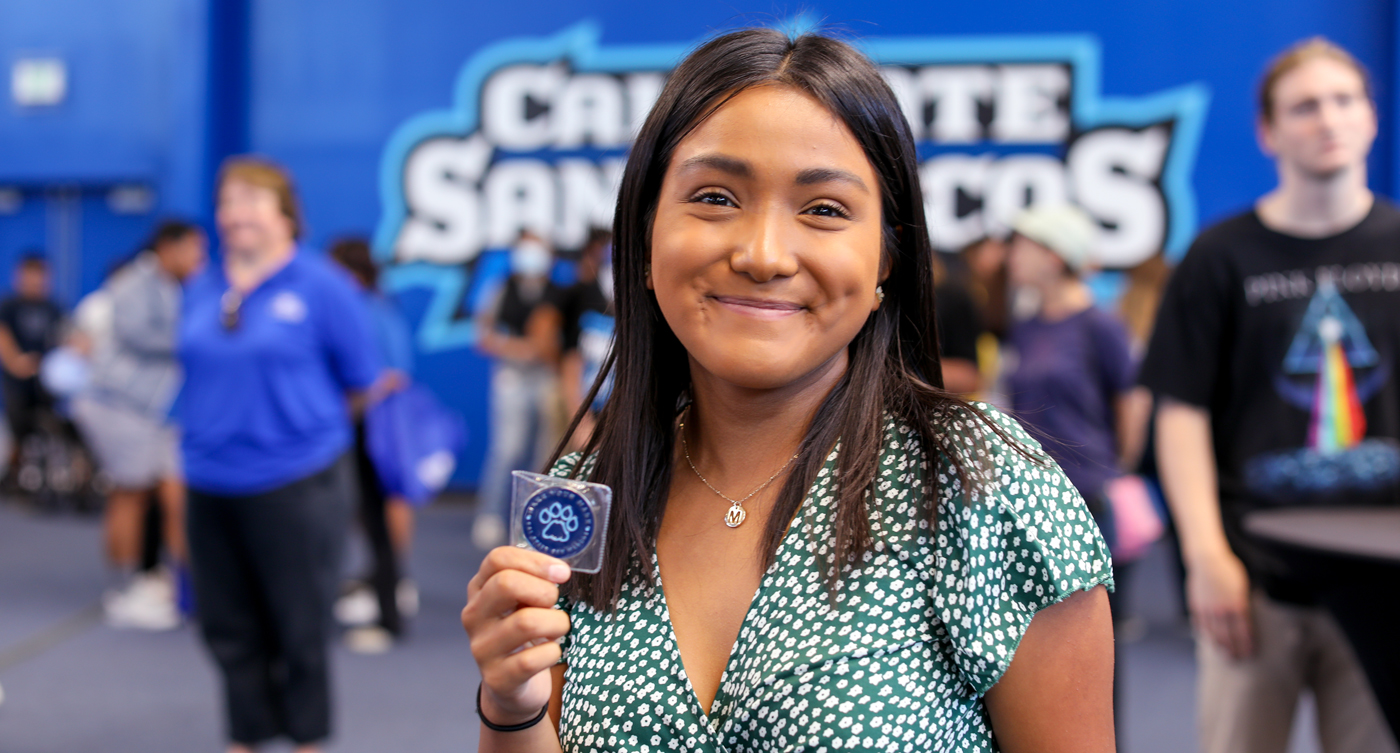
CSU San Marcos will use HSI Community Grant funding to better understand and adopt the Seal of Excelencia framework, a comprehensive institutional strategy for serving Latinx students developed by Excelencia in Education. Institutions earn seal certification by demonstrating alignment across the three core areas of data, practice and leadership.
The CSUSM Seal of Excelencia initiative will establish a cross-divisional team who will participate in technical assistance trainings to better understand the Seal of Excelencia framework and lead discussions across the campus on what it means go beyond enrollment to intentionally serve Latinx students and their families.
“At CSUSM we want to not only promote access and enroll more Latinx students, but we also want to make sure they succeed in pursuing their educational goals," says Viridiana Diaz, Ed.D., CSUSM's Vice President for Student Affairs. “To do this effectively, we have to build mechanisms to collect and share data about the Latinx student experience on our campus and use that data to inform our strategies to implement, leverage and expand impactful support services."
The team will work directly with departments providing services to Latinx students to offer consultation, data, planning and analysis support to establish ways to incorporate action plans aligned with the Excelencia framework and establish long-term, evidence-based measurements to support continuous improvement.
“Having robust, valid and actionable data to guide decision making will let us evaluate interventions to identify high-impact practices in Latinx student support to expand their reach and impact," Dr. Diaz says. "It will also let us identify gaps or areas of opportunity for improvement to address unmet needs and ensure we are supporting our Latinx students holistically across every stage of their student life cycle."
CSUSM will apply for Seal of Excelencia certification in Spring 2024. Currently, five CSU campuses have been awarded seals, out of only 30 institutions in the country: Channel Islands, Fresno, Fullerton, Sacramento and San Diego.
California State University, Fullerton
"Biomanufacturing Workforce Training Program for Students from Historically Underserved Communities"
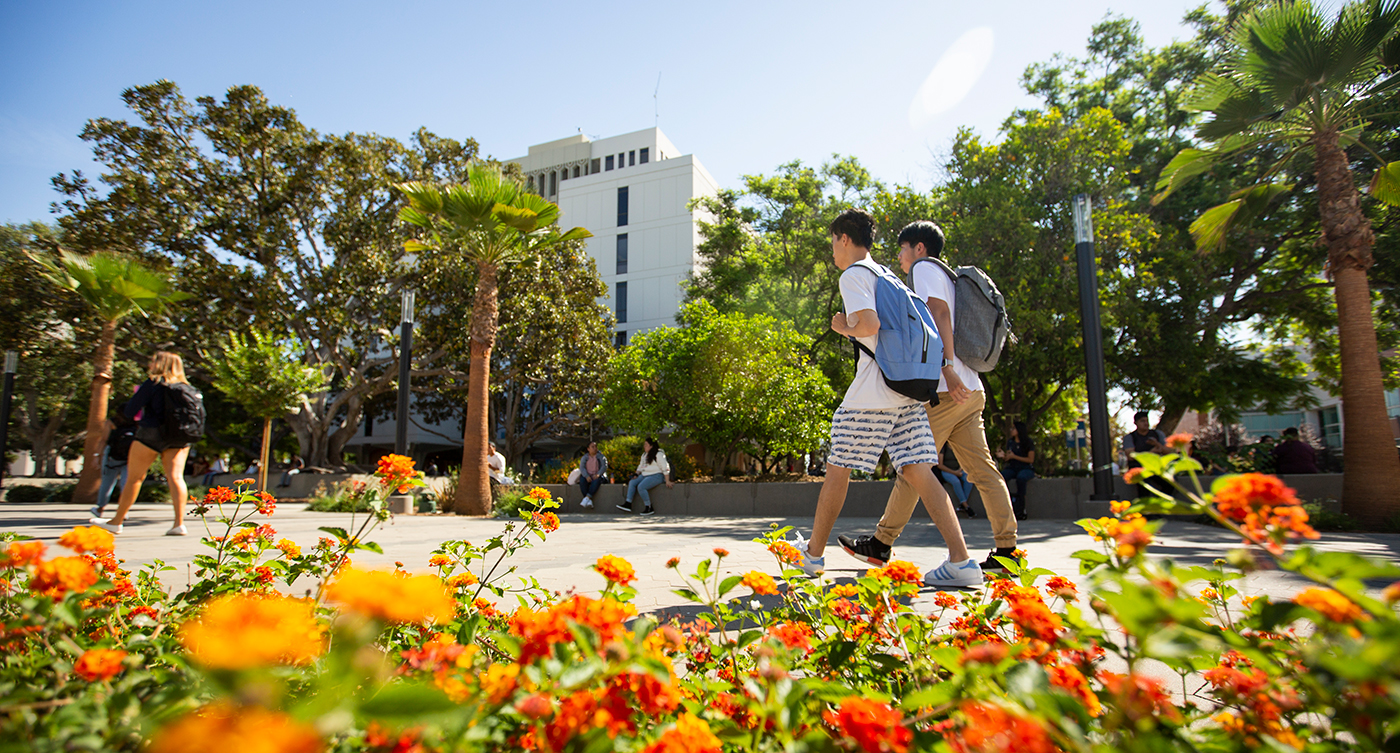
In response to a growing need for biomanufacturing technicians in Southern California, Cal State Fullerton, Cal State Long Beach and Cal State LA formed a consortium with industry association BIOCOM California Institute to develop a new Biomanufacturing Technician (BMT) program set to launch in 2023. The program is designed to prepare diverse STEM students for entry-level positions in the biomanufacturing, biotechnology and biopharmaceutical industries.
The consortium plans to use funding from their HSI Community Grant to recruit and retain students from underserved communities for the BMT program, working with the Orange County Department of Education, Los Angeles County Office of Education and local high schools and community colleges to promote the program.
Cal State Fullerton Associate Professor of Mechanical Engineering Sagil James, Ph.D., says the team will offer a free pathway program that provides a refresher on basic STEM principles and a learning and information-sharing platform for students to get acquainted with essential skills, explore various career options and interact with career professionals that will make them competitive in the biomanufacturing job market.
“We want students from historically underserved communities to know they can succeed in a program they may have felt is not for them," Dr. James says. “Our goal is to provide an adequate foundation in biomanufacturing-related basic scientific and engineering concepts so that these students do not face any difficulty while navigating through the BMT program."
BMT program participants will complete three 40-hour courses, one from each campus in the consortium, that will help them develop a theoretical and experiential knowledge of biomanufacturing including various state-of-the-art techniques and processes, instrumentation used in biomanufacturing industries, research and discovery and process development.
James says the success of this project will depend on whether the team can “ensure biomanufacturing career readiness for a diverse student population and provide a highly skilled workforce for the biomanufacturing industry."
California State University, Chico
"STEM Peer Coaching Initiative"

Leveraging the success of a similar program for first-time STEM students, called STEMCAT Mentoring, Chico State will use HSI Community Grant funding to pilot the STEM Peer Coaching initiative which targets second-year STEM students from historically underrepresented communities as well as other first-generation and low-income students who are on academic notice.
According to Teresita Curiel, Chico State's Latinx Equity and Success Director, first-year STEM students can experience some of the most high-unit, academically rigorous courses early in their campus experience and can be more susceptible to academic notice. If no intervention is made in their second year, students may be less likely to persist to graduation.
“These conditions can be further exacerbated for underrepresented students who are mostly first-generation to college and from low-income backgrounds," Curiel says. “Hence, this pilot aims to provide target students with timely, individually tailored and culturally-responsive support through near-peer coaching to improve their academic standing and successful progress at the university and in STEM."
The project links and intentionally leverages peer-to-peer academic coaching as a demonstrated method in promoting college student retention and success and cross divisional partnerships with existing federal HSI grant projects in STEM, academic support services like supplemental instruction, tutoring and writing assistance and the collaborative network of professional academic advisors.
“Upward social and economic mobility is the promise that often draws students from historically underrepresented, first-generation to college and low-income backgrounds to the CSU," Curiel says. “Through the student-centered, high-impact work of the STEM Peer Coaching pilot, our campus reinforces our commitment to student success and a life-changing educational experience."
California State University, Northridge
"From Prison to Computer Science Careers: Creating a Pipeline for Formerly Incarcerated Students"
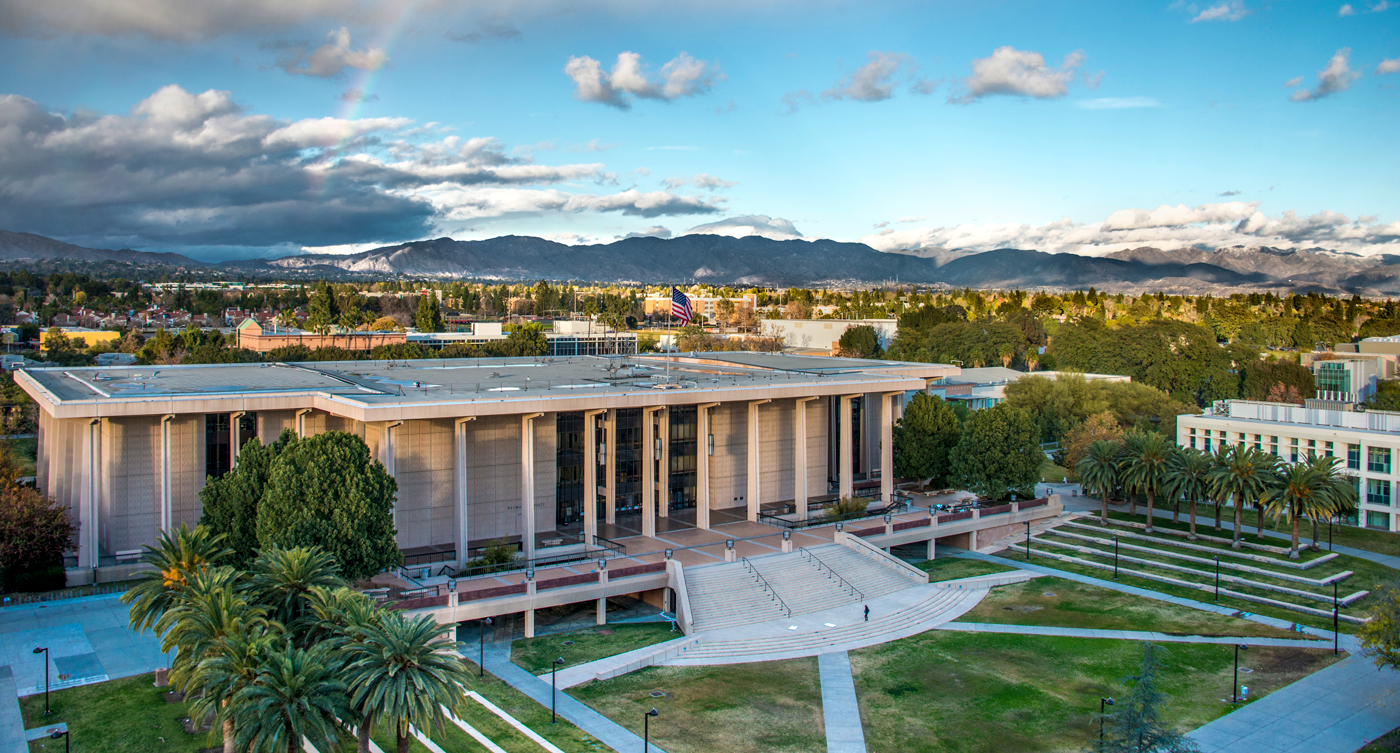
Building on prior work through Project Rebound, a CSU program that supports the reintegration and education of formerly incarcerated individuals, CSUN Project Rebound will partner with Homeboy Industries, a gang rehabilitation and re-entry program in Los Angeles, to create access to careers in computer science for people with criminal backgrounds.
The project will be developed and implemented by Maria Martinez, a recent CSUN graduate and former Project Rebound scholar. Martinez became involved with Homeboy Industries as a volunteer while pursuing a bachelor's degree in computer science, offering free tutoring in computer science and coding.
“When I paroled, the only skill I had was, maybe, hemming pants," Martinez jokes. “My sister is a software engineer for a gaming company, and she helped me get into a computer science apprenticeship, but I don't want to be the only one to benefit from this kind of experience. I want to help more people in my position improve their lives after incarceration."
Project Rebound at CSUN will establish a community fellowship program at Homeboy Industries to train ten formerly incarcerated community fellows on computer literacy and fundamentals of JavaScript code. Martinez and several current Project Rebound Scholars will also prepare fellows to apply to a paid software engineering apprenticeship program through Next Chapter, an organization working to create pathways for formerly incarcerated individuals to obtain gainful employment in the technology sector.
“Tech companies like Dropbox, Slack and Zoom are making job opportunities available for formerly incarcerated people, but a lot of them lack basic computer literacy skills needed to pass entrance exams," Martinez says.
The main objective is to help at least four community fellows successfully enter Next Chapter's apprenticeship program in Spring 2023 and help place at least two of them with a host company for an onsite engineering apprenticeship program in Fall 2023.
“Eventually my goal is to recruit more formerly incarcerated women into computer science careers, especially those with children," Martinez says. “I want to give them an avenue to break the cycle of poverty and provide a better example for their children, so they won't also end up in the system."
California State University, Channel Islands
"Serving Black Students at CSUCI"
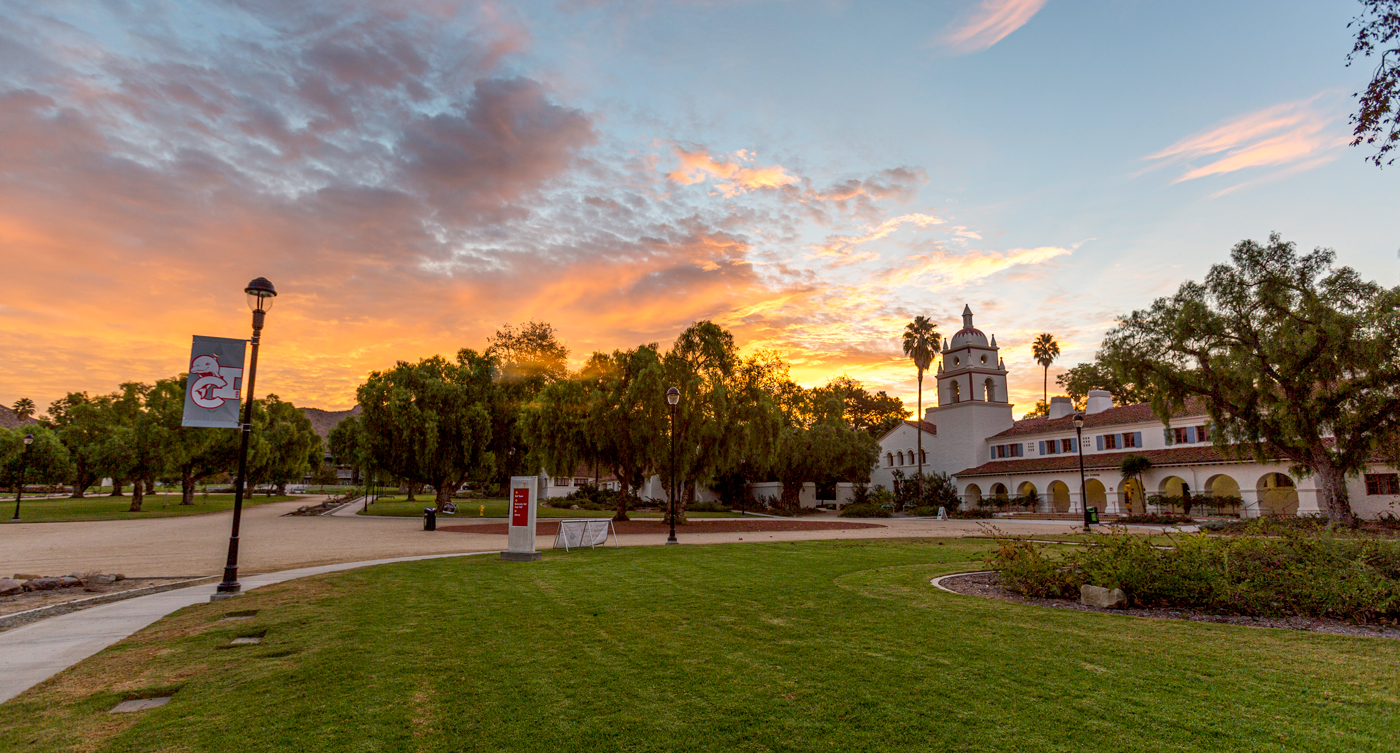
The CSU Channel Islands Division of Student Affairs (DSA) has been awarded an HSI Community Grant to focus on broadening support for the university's Black students through innovative initiatives and programs.
The grant will support dedicated staff for student programming and efforts to coordinate anti-Blackness training for DSA staff and leadership training for students, engage Black alumni and create a student-led podcast for storytelling in Black voices. The overall objective for this proposal is to amplify retention rates for Black students by fostering a community that celebrates African American and Black culture.
CSUCI Special Assistant to the Vice President for Student Affairs Doreen Hatcher, Ed.D., says serving Black students is different than serving Latinx students. Most [of CSUCI's] Black students are not local, but from the Los Angeles area, so providing opportunities for them to build community and create a network of support will increase cultural awareness and belonging on campus.
“Additionally, many support programs focus on supporting first-generation students, but there is a larger percentage of Black students whose parents graduated from college than Latinx students," Dr. Hatcher says. "Helping them persist to graduation requires different strategies."
Hatcher says she hopes to create a physical space for Black students to gather for movie night or talking circles. She also wants to go a step beyond anti-racism and anti-bias training and offer training on cultural competence for students, faculty and staff focused on interacting with Black students.
"We must disaggregate the data to identify the true characteristics of CSUCI's Black students instead of lumping them into a catchall group of underrepresented students," Hatcher says. "Once that occurs, we can cater programs and services to support the Black student college experience."
San Francisco State University
"Inspiring Challenge-Based Learning at the Latinx Student Center"
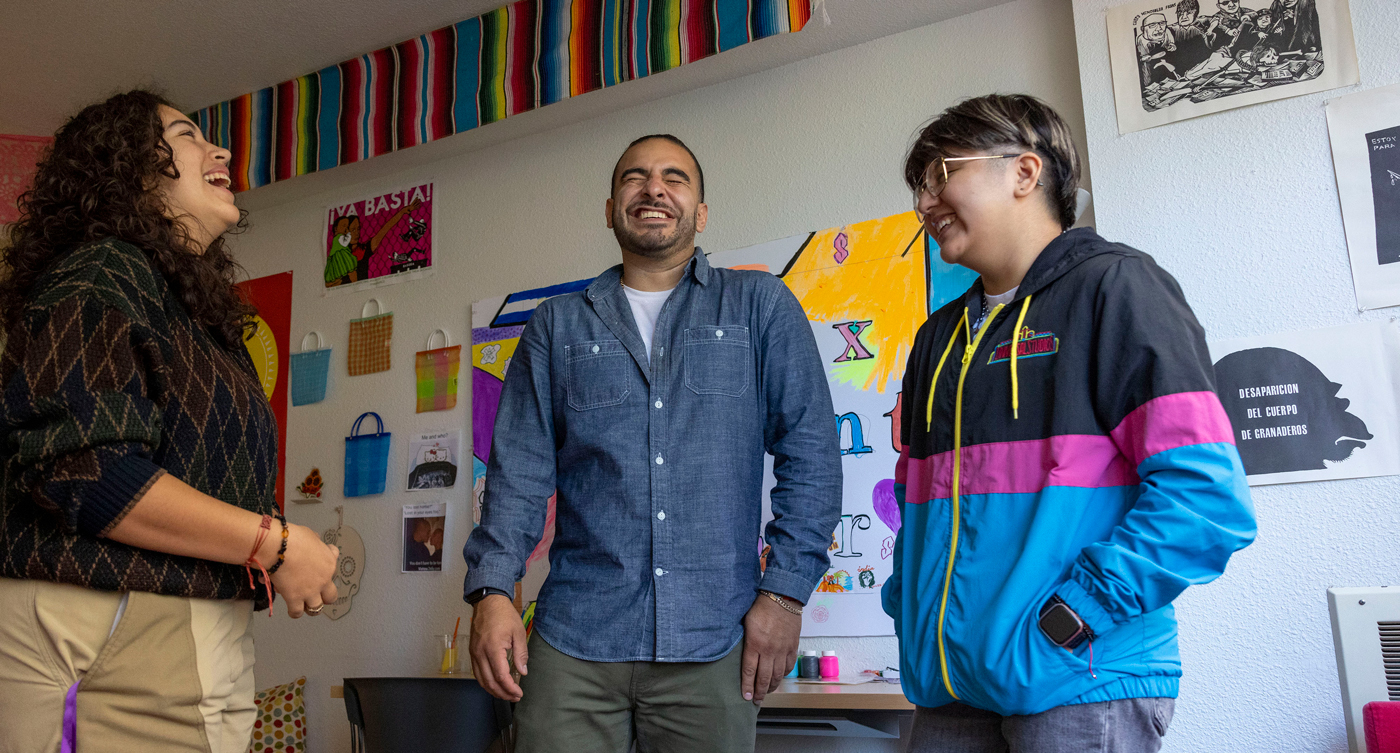
San Francisco State's Latinx Student Center (LSC) will use its HSI Community Grant to fund two projects that will leverage technology to solve real-world problems impacting the Latinx student community through challenge-based learning that helps students develop as future leaders and professionals in the creative and tech industries.
The first project is the creation of a video blog with multimedia and social media for the LSC. A team of six to eight students will use a blog and social media channels like TikTok and Instagram to provide updates on the activities of the LSC, including programs and activities run by student clubs through the LSC, and other campus events relevant to the SFSU Latinx community.
Funding also includes an Apple Technology Grant that will be used to purchase equipment necessary to produce the video blog including a computer, video camera and microphone.
“The creative and tech industries are drivers of upward mobility, especially in the Bay Area where these two key industries overlap," says LSC Director Emmanuel Padilla. “The focus on challenge-based learning that leverages technology builds students' capacities for creative problem solving and is key to nurturing students as future leaders."
The second project is the piloting of problem-solving learning circles where three groups of five to seven students will engage in challenge-based learning by working together to solve a real-world problem related to their community. For this pilot, the problem will be the equity gap for retention and graduation rates of Latinx students at SFSU.
“These teams will spend the first semester collecting data and conducting qualitative research with their Latinx-identifying peers, a tactic that can reveal some interesting results," Padilla says. “Students are typically more comfortable and open with their peers, so this can be a way for us to identify barriers to graduation—and ways to alleviate them—that administrators may not be aware of."
The teams will spend their second semester creating an intervention that tries to address the problem and inform future Graduation Initiative 2025 efforts at SFSU. The initiative has shown progress in improving four-year graduation rates for first-time students systemwide, and more work is being done to eliminate equity gaps.
The CSU is committed to being a leader in elevating the lives and experiences of Latinx individuals. Learn more about how the university supports its Latinx students.